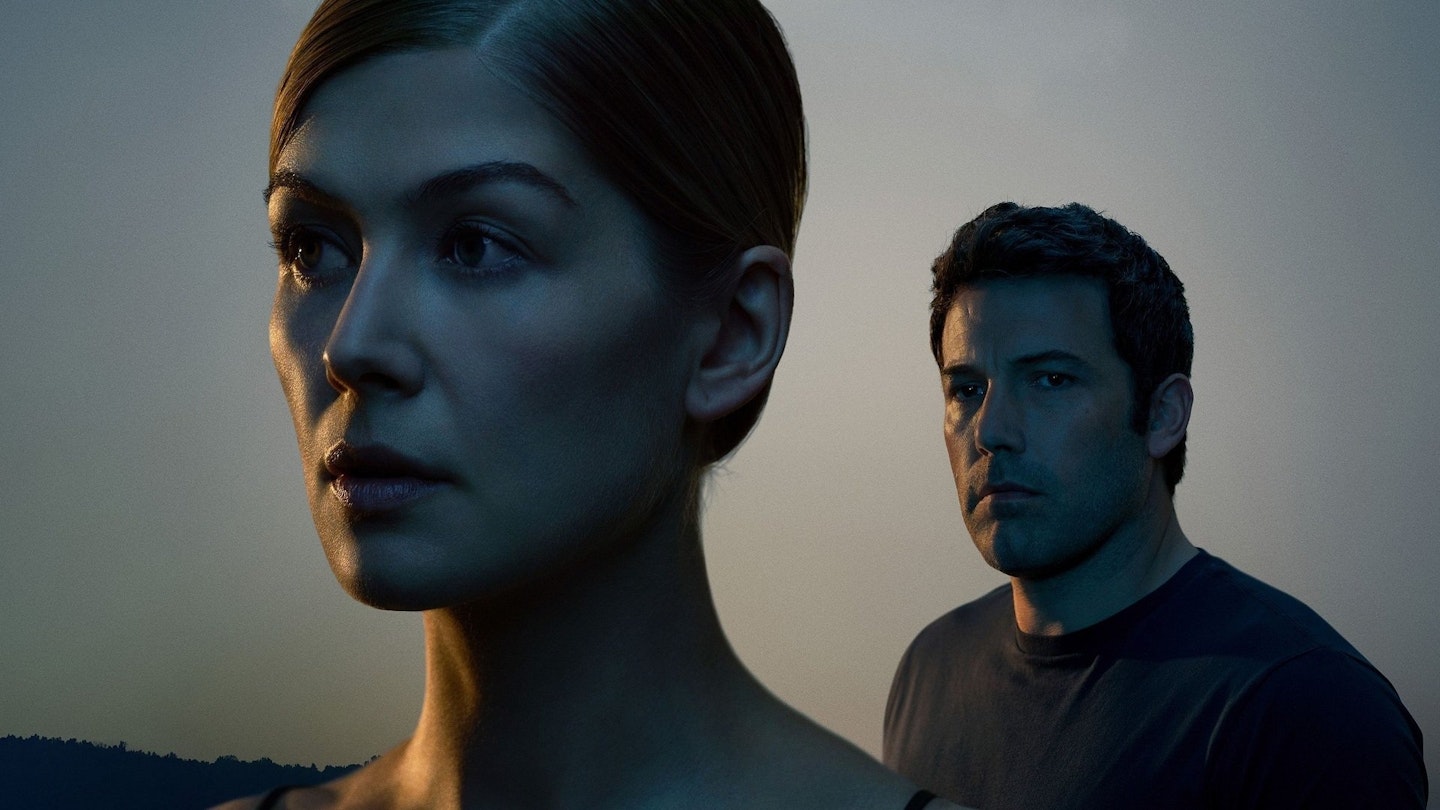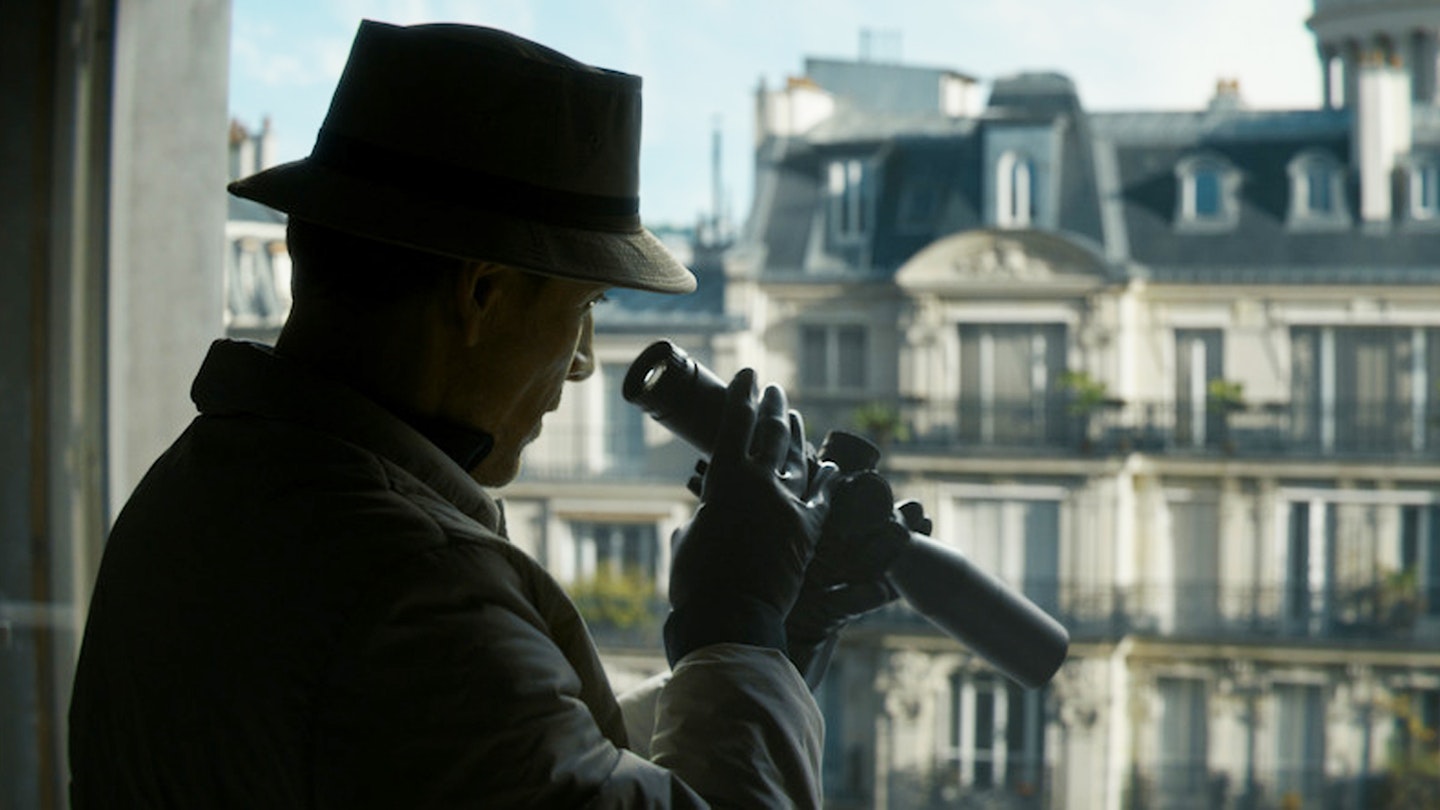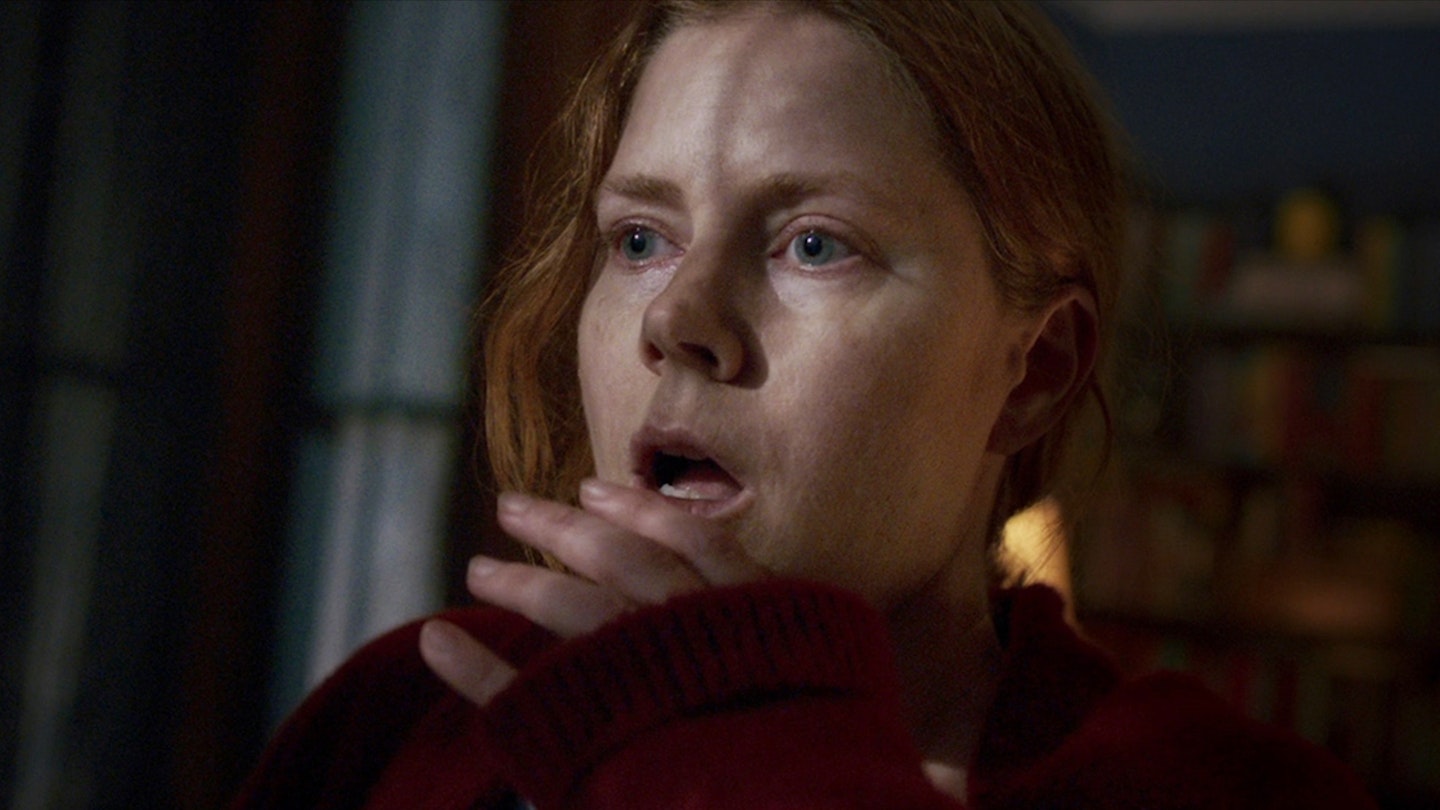David Fincher’s Gone Girl opens with a weirdly framed close-up of Amy Dunne’s (Rosamund Pike) head, while her husband Nick (Ben Affleck) muses on the often unspoken thoughts that might course through any marriage: “What are you thinking?” “How are you feeling?” “What have we done to each other?” The complex psychology and shifting dynamics of long-term relationships are just two of the engines driving Fincher’s adaptation of Gillian Flynn’s 2012 battle of the sexes bookbuster; others include the pernicious voyeurism of the media, the way we curate and present our personalities in the modern era and just how will Ben Affleck fit into that batsuit with that belly? The net result is, especially in its first two thirds, a cinematic equivalent of a juicy page-turner, a gripping, sharp, blissfully entertaining thriller that pushes every hot-topic button you can think of to become the must-talk-about film of the year.
It’s not hard to see why Fincher was attracted to Gone Girl. It touches base with much of his previous work: Panic Room (a key location is decked out to the rafters with surveillance equipment), Zodiac (the sense of a procedural in the information age) and The Girl With The Dragon Tattoo (a particularly violent bedroom encounter) are all touchstones. But more pertinently, there is a briskness and a malicious glee in telling a tale that harks back to Seven and The Game. There’s no head-in-the-box moment, just the buzz of a director delighting in leading you into some dark, dark recesses.
Flynn’s book shifts between first-person narratives told from Nick (the present) and Amy’s (the past) perspectives and Fincher’s film respects the structure. After a montage locating it squarely amid the McMansions and mailboxes of well-off America, Fincher gives us quickly sketched glimpses into Nick’s life — small talk with his sister (the excellent Carrie Coon), playing board games in his bar — before his world is turned upside down. With his wife missing, a smashed table and no apparent bloodbath, the investigation is led by the Marge Gunderson-esque Rhonda Boney (Kim Dickens)
and sceptical sidekick Jim Gilpin (Patrick Fugit). You’d expect Fincher to be good at detective stuff — he gifts the cop pairing enough character not to feel rote, but not enough to slow things down — but he also excels at creating the hoopla around the CSI: the press conferences, the TV talk show debates, the community search, a candlelit vigil and the blurred line between culprit and celebrity.
If Nick’s tale feels like heartland for the director, the Amy side gives us a glimpse into what a David Fincher Romcom might feel like. As we meet them, the pair are at a party, people watching, joking about quinoa-ignorance (he thinks it’s a fish) and mispronouncing the lyrics to New York, New York (she sings “these bag-o-bones shoes”) before kissing in a sugar storm created by a backstreet bakery.
Early doors, Pike perfectly becomes the embodiment of Flynn’s notion of the “cool girl” — “a hot, brilliant, funny woman who adores football, poker, dirty jokes and burping” — but finds other colours, too. “We’re so cute I could punch us in face,” Amy tells Nick, as they open fortune cookies and swap matching anniversary presents. But this is Fincher — you can’t imagine Adam Sandler chowing down on Drew Barrymore for cunnilingus — and it is not long before fissures start to appear. A recession, two job losses and a pre-nup are just the start. Only in a Fincher film would a protagonist buy a gun for Valentine’s Day.
The first act is smartly sketched, a nice balance of character stuff and intriguing set-up. But moving into the middle section, Fincher and Flynn ratchet things up to a whole new level of compelling. As the truth about Amy’s disappearance emerges, Fincher turns the screws on Nick, rattling the skeletons in his closet — there are red herrings and red panties — sending him further down the river until he lawyers up with Tanner Bolt, the “Patron Saint Of Wife Killers” (Tyler Perry gives a nice comic energy without diluting the drama).
Affleck nimbly treads a tightrope between innocent, affable man accused and disillusioned husband who could happily strangle his wife. The grand design works because it finds a centre in its star.
In the end, Gone Girl is a film about image and perception. On the broader level, it’s about how the media builds fabulations that quickly get subsumed as truth, and the fickleness of the public that will swallow whatever narrative is being sold. On a more intimate level, it is about the façades we build, the masks we wear. The impossibility of knowing those closest to us (not to mention the depiction of marriage as a bleak prison) is a prevalent theme in art house cinema. Here we get it at the centre of a mainstream, white-knuckle crowd-pleaser.
Just as the emotions are stripped back and raw, so Fincher’s work is equally unshowy. The fanboys may pine for the coffee-pot shot bravura of Panic Room or the speeded-up rowing race set-piece of The Social Network, but this is the director working without flash and thunder, confident his narrative has more than enough. Still, working with regular DP Jeff Cronenweth, he pulls out subtly arresting images — Amy floating on a lilo in a swimming pool — that speak less to flair and more to style. Gone Girl’s filmmaking M.O. is cold, controlled and clinical. It doesn’t have a hair out of place.
Yet, a couple of things don’t quite come off. When the film comes to resolve itself, its solutions don’t satisfy, the third act powering down rather than ramping up. Also, Fincher doesn’t quite nail the tone in the home stretch. In its latter stages he tries to more overtly syringe satire into the grimness (especially around Neil Patrick Harris’ ex Desi) and it doesn’t quite land. But its scalpel-like dissection of the mindset of marriage still holds sway. If love is a battlefield, Fincher’s film is a despatch from the white-hot heat of carnage. For those in a relationship, you may recognise its petty hatreds, artful manipulations and quiet despair. For those who are not, it will make you thankful to be single.








